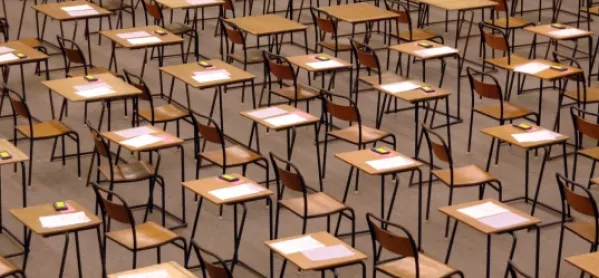GCSE results day is on 23 August, and many teachers will already be thinking about what they need to do if one of their pupils’ marks looks wrong.
Here’s what you need to know about reviews and appeals:
What are reviews of marking and moderation?
Once a school has received its GCSE results, it has to decide whether it thinks any of the marks awarded to pupils seem out of kilter.
Schools and colleges can ask exam boards to review whether there were any errors in the exam board’s marking of an exam or their moderation of coursework.
Before making this decision, the school may ask for the script – which comes at a cost, unless the exam board is Edexcel. The boards must also make mark schemes available.
How does the review work?
When reviewing any assessment, the board must arrange for a reviewer to consider whether the original marker made any errors.
If the reviewer finds a marking error, the reviewer’s mark will replace the original mark and the exam board must change the grade if necessary.
Any new mark and grade awarded after the review could be higher or lower than that originally given. If the reviewer does not find a marking error, the original mark must not be changed.
What are appeals?
A school can ask an exam board to give reasons for the outcome of a review. And if you go through the review and are not satisfied with the outcome, you can also appeal.
Appeals can be made on the grounds that an exam board did not apply its procedures consistently, or that procedures were not followed properly and fairly.
A second ground for appeal was introduced for A levels in 2017 and is currently being rolled out for GCSEs: that there was an error in the original marking or moderation, or in the review of that marking or moderation. For example:
- An administrative error (such as adding up marks incorrectly) had not been corrected
- The mark scheme was not properly applied
- The mark could not have been given by a trained marker, who had appropriate subject knowledge and exercised their academic judgement in a reasonable way.
This second ground will be possible for GCSEs in English language, English literature and maths in 2018, and to all other GCSEs in 2019.
Appeals can also be made in respect of:
- Decisions regarding requests for reasonable adjustment and special consideration
- Decisions regarding actions taken following an investigation into malpractice or maladministration
The setting of a grade boundary cannot be the subject of an appeal.
If a school is not satisfied with the outcome of the preliminary appeal, they can request an appeal panel to be convened with an independent chair. A member of staff from the school must present their case to the panel
What if you’re still not satisfied?
If you’re still unhappy, your school can ask Ofqual to review the case through the Exam Procedures Review Service. Ofqual will look at whether the exam board has followed its rules and the board’s own procedures.
Fees
Exam boards can charge a fee for reviewing a mark and for considering an appeal. They have to publish the fees they will charge, and be clear about any circumstances in which they will not charge (for example, some boards won't charge if the review results in a grade change).




